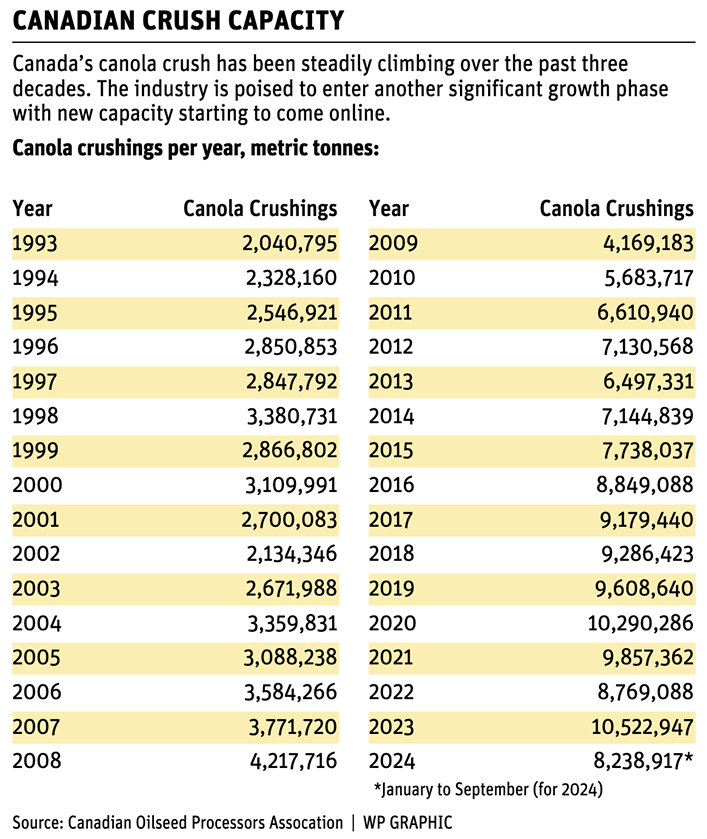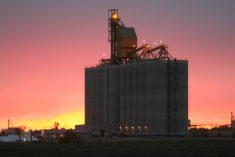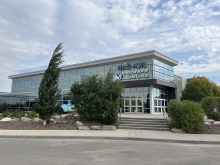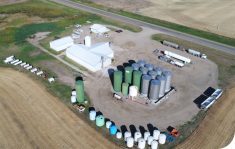SASKATOON — The first in a series of previously announced canola crush plants is up and running, while other projects appear to be stalled.
Richardson International has more than doubled capacity at its plant in Yorkton, which can now crush 2.5 million tonnes of seed annually, up from 1.1 million tonnes.
Related stories:
Read Also

Canola oil transloading facility opens
DP World just opened its new canola oil transload facility at the Port of Vancouver. It can ship one million tonnes of the commodity per year.
• Overseas used cooking oil hinders U.S. soybean crush
• Richardson to double crush capacity at Yorkton plant
“It’s the largest canola crushing plant in the world,” said Tobias Dewey, vice-president of oilseed operations with Richardson.
The project came in on time and on budget, although the company will not disclose how much it cost.
“The expansion at our Yorkton crush plant is the single largest construction project we’ve done as a company, so it was obviously very important to us.”
Commissioning started in March and is ongoing as the company fine tunes its new equipment. The plant is running at its targeted capacity.
The Yorkton expansion comes on the 25th anniversary of Richardson’s entry into the canola crushing business with its 1999 purchase of the Canbra Foods plant in Lethbridge.
The company recently spent $120 million increasing the annual crush at its Lethbridge facility to 700,000 tonnes from 450,000 tonnes.
The Yorkton expansion included “major modifications” at the front and back ends of the facility. It can now unload 250 super-B trucks per day through three high-speed unloading lanes.
It takes less than 12 minutes from the time a truck enters the new probing and scale house to the time it leaves.
The facility now has three 9,500-foot loop tracks and spots for 950 rail cars on 17 kilometres of track. The plant can load more than 520 rail cars per week.
Dewey said the facility supplies oil to the food and fuel markets in North America and also ships oil and meal pellets overseas.
He is “very optimistic” about future canola production despite recent weather challenges and believes there will be plenty of supply for both the domestic crush sector and export markets.
The Richardson plant is the first to cross the finish line among a series of projects announced over the past few years. Two of the remaining plants are under construction, while three appear to have stalled.

Cargill issued a press release in July saying it has passed the 50 percent completion milestone for the $350 million processing plant it is building at the Global Transportation Hub in Regina.
Construction on that project began in July 2022 and it is expected to open for business in 2025. The facility will process one million tonnes of seed per year once operational.
“The addition of the Regina facility to the Cargill network will play a critical role connecting the Canadian canola industry to the expanding domestic and global market opportunities for vegetable oil, high quality meal and biofuels,” Cargill Canada president Jeff Vassart said in the press release.
The company purchased just over 400 acres near the Global Transportation Hub to support rail and road infrastructure around the new plant.
A Cargill spokesperson said in an email that the firm has no further updates on the project.
Louis Dreyfus Company announced in April 2023 that it was expanding its canola processing facility in Yorkton, Sask. The project will double the company’s annual crush capacity to over two million tonnes upon completion.
“We are pleased to advise that construction is active on the work site and moving along as per expectations,” an LDC spokesperson said in an email. “We have no further comments regarding timing or project completion.”
Viterra announced plans to build the world’s largest integrated canola crush facility in early 2021. The proposed plant would be capable of crushing 2.5 million tonnes of seed per year, the same as Richardson’s Yorkton plant.
“Over the years we have made a number of strategic investments in Canada, and we are excited at the potential opportunity to further enhance our processing business,” chief executive officer David Mattiske said at the time.
The grain company has reportedly purchased more than 600 acres of land north of Regina to build what some documents indicate would be an $800 million plant.
The facility was originally targeted to be operational by late 2024 but construction has not yet begun. Viterra was asked to provide an update on the project, but said its attention is focused elsewhere.
“With our announced business combination with Bunge, our team is focused on regulatory approvals and integration planning to ensure a smooth transition for our customers across our complementary asset network,” a company spokesperson said in an email.
“We expect to complete the merger in late 2024, or early 2025, and will be able to provide an update after this time.”
Federated Co-operative Limited and AGT Food and Ingredients Inc. announced in early 2022 a joint venture to build a $360 million canola crush facility in Regina.
The plant would be 51 percent owned by FCL and 49 percent by AGT. It would process 1.1 million tonnes of canola seed per year once operational.
“We believe AGT’s capabilities in grain logistics and plant protein ingredients combined with FCL’s strong history in energy and farm inputs creates a powerful partnership that will benefit the communities in which we operate,” AGT president Murad Al-Katib said in a press release at the time of the announcement.
The plan is for the crush plant to provide canola oil to a renewable diesel plant being built by FCL adjacent to its existing oil refinery.
Total cost of the project was originally estimated at $2 billion. The renewable diesel plant was supposed to be operational by 2027 and the crush plant would be up and running prior to that.
But two years later, FCL said costs had doubled due to inflation.
“We want to make sure this project goes forward, but it can’t be at all costs, because we have to be sustainable for the future as well,” FCL chief executive officer Heather Ryan said in a November 2023 scrum with reporters at Canadian Western Agribition.
She said the project was still in the front-end engineering and design phase and that 2028 is the earliest that it could be operational.
A year later, the front-end engineering and design phase is complete, and the company is still mulling over the project.
“Due to a variety of factors including inflationary costs and uncertainty in low-carbon public policy, projects related to our Integrated Agriculture Complex continue to progress through a rigorous financial and project feasibility gated review process,” an FCL spokesperson said in an email statement.
“This stage gate process applies careful consideration and evaluates all options to ensure investment decisions are appropriate and meet our compliance obligations and timelines.”
Bunge has also been linked to a possible canola crush project, although there has been no official confirmation or announcements from the grain company.
In late 2021, it was reported that the firm had obtained approval through Alberta’s Foreign Ownership of Land regulations to build a canola processing plant on a section of land in Lamont County east of Edmonton.
The company did not provide any details of the proposed facility at that time.
Bunge was contacted for this story to clarify its intentions with the property, but did not respond. An official with Lamont County said Bunge still owns about four quarter sections in the region.
Some engineering work has been completed on the land but there has been no construction on the site.


















